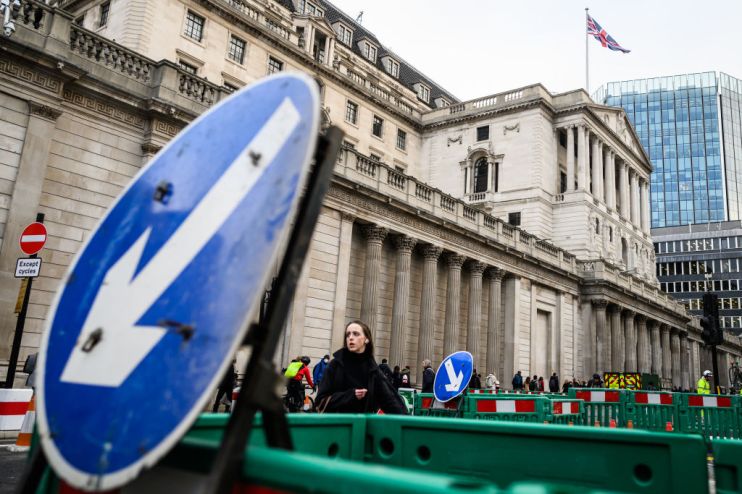FTSE 100 close: London index dips below 8,000 point mark on interest rate hike fears

London’s FTSE 100 closed below the 8,000 point today driven lower by a broad sell off fuelled by investors sweating over more interest rate rises from central banks.
The capital’s premier index slipped 0.46 per cent to 7,977.74 points, while the domestically-focused mid-cap FTSE 250 index, which is more aligned with the health of the UK economy, fell 1.23 per cent to 19,850.85 points.
Stocks were softened by bond yields rising on growing expectations central banks will have to keep raising borrowing costs to hit demand and curb inflation.
Fresh purchasing managers’ indexes for the UK services and manufacturing sectors out today came in much higher than expected, returning the country’s private sector economy to growth for the first time in half a year.
“While a positive development this has served to help push yields higher in anticipation that central banks might have to be slightly more hawkish when it comes to raising rates in the coming weeks,” Michael Hewson, chief market analyst at CMC Markets UK, said.
FTSE 100’s new year rally lost some steam today

The yield on the benchmark 10-year gilt climbed 15 basis points today to 3.6 per cent. Prices and yields inversely. Higher yields often knock stocks as they make fixed income assets like bonds more attractive and knock the value of companies’ future income.
Bank of England governor Andrew Bailey and co have raised borrowing costs 10 times in a row to 15 year high of four per cent to target inflation, which has been running in the double digits for several straight months.
Interest rate sensitive sectors dogged the FTSE 100 today.
House builders Persimmon and Barratt Developments each shed more than two per cent. Higher borrowing costs compounded by the cost of living crisis has raised fears of a slow down in the UK housing market this year.
London’s FTSE 100 has routinely set new record highs in 2023 and last week topped the 8,000 mark for the first time ever.
However, it has dropped back below that threshold this week.
The pound strengthened over 0.6 per cent against the US dollar today on hopes Britain could swerve a much tipped recession after this morning’s strong PMI.